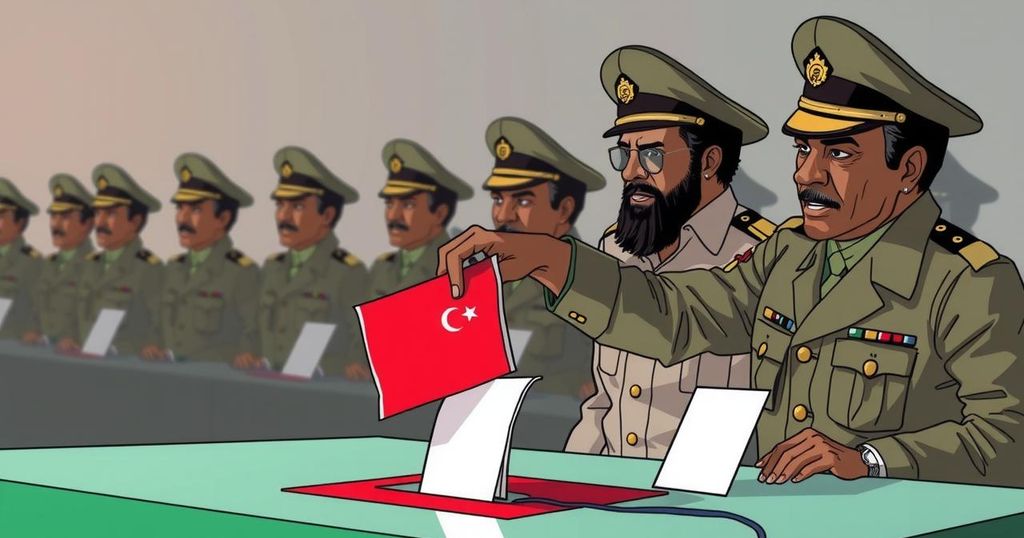Low Voter Turnout Marks Chad’s Parliamentary Elections Amid Opposition Boycott

Chad held parliamentary elections with low voter turnout amid an opposition boycott, citing doubts over electoral credibility. The event marks the first parliamentary election in over a decade, following a disputed presidential vote earlier in the year. Despite over 8 million registered voters, participation was minimal, raising concerns about the legitimacy of the electoral process and the future of democracy in Chad.
Chadians participated in parliamentary elections on Sunday, albeit with a notably low voter turnout, as the majority of the opposition boycotted the event, alleging that the electoral process was not credible. This parliamentary election marks the first of its kind in over ten years in Chad, occurring after the junta leader Mahamat Idriss Deby’s disputed presidential election this past year, which was intended to restore democratic governance. Voting concluded on Monday, with official results expected in two weeks. Deby asserted that these elections would usher in a long-anticipated phase of decentralization that the populace desires.
Despite having over 8 million registered voters for this election, reports indicated minimal participation, particularly in the capital city, where many polling stations saw only a few voters. More than ten opposition parties are abstaining from the elections, including the prominent Transformers party, whose candidate Succes Masra labeled the process a “charade” aimed at perpetuating Deby’s grip on power. Masra, who re-entered politics after a period of exile, urged potential voters to refrain from participating, proclaiming that the results were likely to be fabricated.
The current election cycle occurs during a precarious juncture for Chad, grappling with various security threats including assaults from Boko Haram in the Lake Chad area, alongside a deterioration of its longstanding military partnership with France. Political experts have suggested that the critical issue at stake is to avoid extending the country’s transitional phase beyond what is necessary. Observers note that while this election is pivotal for leaving military oversight, the lack of opposition representation poses substantial shortcomings and risks the consolidation of power.
Chad has not witnessed a proper transfer of power since gaining independence from France in 1960. The current parliamentary elections aim to conclude a transitional period of military rule initiated after the death of former president Idriss Deby Itno in 2021. The junta leader Mahamat Idriss Deby has been criticized by opposition groups for perceived electoral misconduct during previous elections, including presidential votes held earlier this year, which are viewed as undermining the country’s chances for a legitimate democratic future. The political landscape in Chad has long been fraught with challenges, including extreme poverty and security threats from insurgents and militant groups, further complicating the pursuit of a stable political environment that reflects the will of the people.
In conclusion, the parliamentary elections in Chad have been marked by significant opposition boycotts and low voter turnout, exacerbating concerns regarding the legitimacy and credibility of the electoral process. As the nation attempts to transition from military rule to democracy, this election presents a crucial opportunity to establish a functioning democratic framework. However, the lack of participation from opposition parties and allegations of electoral misconduct may stall progress and further entrench existing power structures.
Original Source: apnews.com








